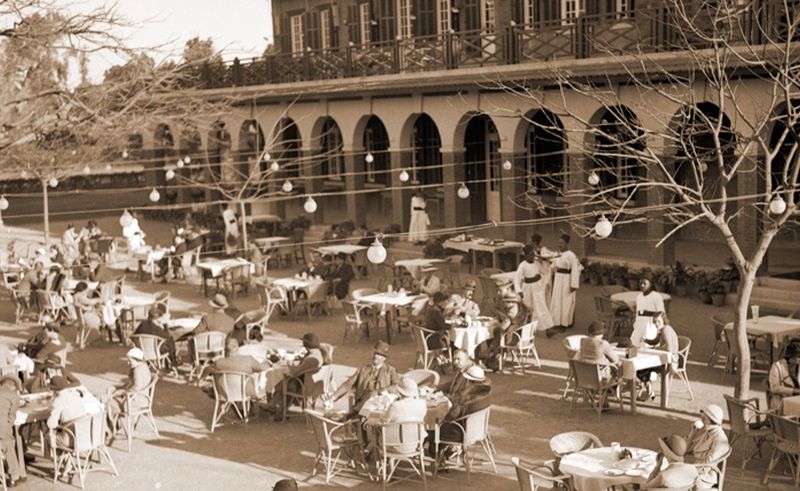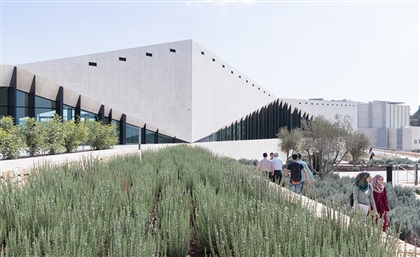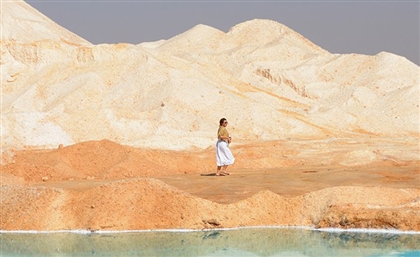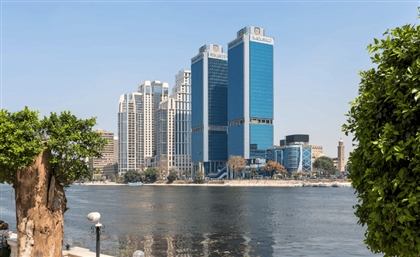The History of Gezira Sporting Club
Established in 1882, the club’s origins were intertwined with British interests. Over time, it became a hub for Egypt’s elite.

Nestled on the verdant island of Zamalek in Cairo, Gezira Sporting Club reflects Egypt’s complex colonial past and its evolution into a bastion of exclusivity, influence and tradition. Established in 1882, the club’s origins were deeply intertwined with British imperial interests, initially serving as a retreat for British military officers and high-ranking civil servants. Over time, it became not only a hub for athletic excellence but also the epicentre of Egypt’s aristocratic and political elite, where power, culture and high society converged.
The 150-acre expanse that the club occupies was originally part of the Khedivial Botanical Gardens, meticulously landscaped under the direction of Delchevalerie, the former landscaper of Paris. Following the British military occupation of Egypt in 1882, this lush terrain was leased to the British military command and transformed into a private club, catering exclusively to British officers with high-end, land-seizing amenities such as a golf course and a racecourse.

Membership was highly restrictive - British army officers were automatically enrolled, while civilians required sponsorship from two existing members and approval from the club’s committee. This was not just about leisure; it was a reflection of British imperial dominance, reinforcing social hierarchies and limiting access to the Egyptian upper class.
By the early 20th century, however, Egypt’s elite had begun to penetrate the club’s walls. Despite British resistance, high-ranking Egyptian officials, aristocrats and members of the royal family gradually secured membership, turning the club into a space where colonial power intersected with Egypt’s own high society.

By the end of World War II, the club’s membership had shifted, becoming predominantly Egyptian while still maintaining its reputation as an enclave of privilege. It was frequented by royalty, statesmen and wealthy industrialists - figures who shaped Egypt’s political and economic direction. King Fuad I and King Farouk were among its most notable visitors, often seen at the club’s prestigious horse racing events, mingling with foreign diplomats and political leaders.
Beyond the royal family, prominent political figures like Mustafa El-Nahhas Pasha played key roles in the club’s administration, ensuring its continued exclusivity. In this way, Gezira Sporting Club was more than a sports club - it was a private domain where Egypt’s elite socialised, networked and negotiated behind closed doors, influencing the country’s affairs in ways that extended far beyond its well-manicured lawns.

The club was not just a retreat for men; it was also a haven for Egypt’s aristocratic women, who played an integral role in its social fabric. Princess Fawzia, Princess Faiza and Princess Faika - sisters of King Farouk - were among its most distinguished members, along with Princess Nevine Abbas Halim, a descendant of Mohamed Ali Pasha, and Zeinab Hanem El-Wakil, wife of Mustafa El-Nahhas Pasha.
These women were more than just passive attendees; they actively shaped the club’s social scene through elite gatherings, charity events and even athletic competitions. During national crises, such as the cholera outbreak of the late 1940s, they mobilized relief efforts, using their influence to support public health initiatives and charitable causes. The club provided a space where these women could engage in philanthropy, social networking and the refinement of high society.

A pivotal moment in the club’s history came in January 1952, when the Egyptian government nationalised Gezira Sporting Club. As part of the broader reforms under the Nasser administration, this move aimed to reclaim Egyptian assets and redefine national identity. The nationalisation transformed the club from a colonial stronghold into a public institution, making it more accessible to a broader segment of Egyptian society.
However, despite this shift, the club retained much of its exclusivity. While membership expanded, it remained a status symbol, attracting Egypt’s upper class, influential business leaders and cultural icons. Even as political power changed hands, Gezira Sporting Club continued to function as a gathering place for the country’s elite, where old-money families, political figures and high-ranking officials maintained their social circles.

Throughout its history, Gezira Sporting Club has also played a crucial role in shaping Egypt’s sporting landscape. Its facilities have nurtured numerous athletes who have achieved national and international acclaim, particularly in basketball, golf, tennis and equestrian sports.
The club’s basketball team, for instance, has secured nine Egyptian Basketball Super League titles, with the most recent championship in 2017. Meanwhile, its golf course - one of the few professional courses in Egypt - remains a draw for both amateur and professional golfers.

However, sports at Gezira Sporting Club were never just about competition; they were a reflection of class and prestige. Equestrian events, in particular, were deeply tied to the club’s aristocratic heritage, with members of the royal family and high society often participating in or sponsoring major competitions. Unlike other Egyptian sports institutions, which were built around national athletic development, Gezira Sporting Club maintained a dual identity: a place for sporting excellence and a hub where success in competition was matched by social standing.
Beyond sports and politics, Gezira Sporting Club has also been a sanctuary for Egypt’s artistic elite. Legendary musician Farid Al-Atrash was a regular attendee of the club’s horse races, and in a poignant moment of history, he once won a race-day bet, only to be devastated by the news of his sister Asmahan’s tragic passing in 1944.

Many of Egypt’s most celebrated actors, musicians and writers frequented the club, using it as a private cultural institution where they could mingle with high society away from the public eye.
Today, Gezira Sporting Club remains one of Egypt’s most prestigious institutions, its legacy deeply embedded in the country’s social and political fabric through Egypt’s many dramatic transformations over the past century. Its towering trees and historic halls hold stories of kings and pashas, athletes and artists 0 each leaving a mark that cements its place as Egypt’s most storied and exclusive club.
- Previous Article The Iraqi-Saudi star’s performance is set to be one of the key events
- Next Article Select 307: Mixed by Bader
Trending This Week
-
Aug 13, 2025



























